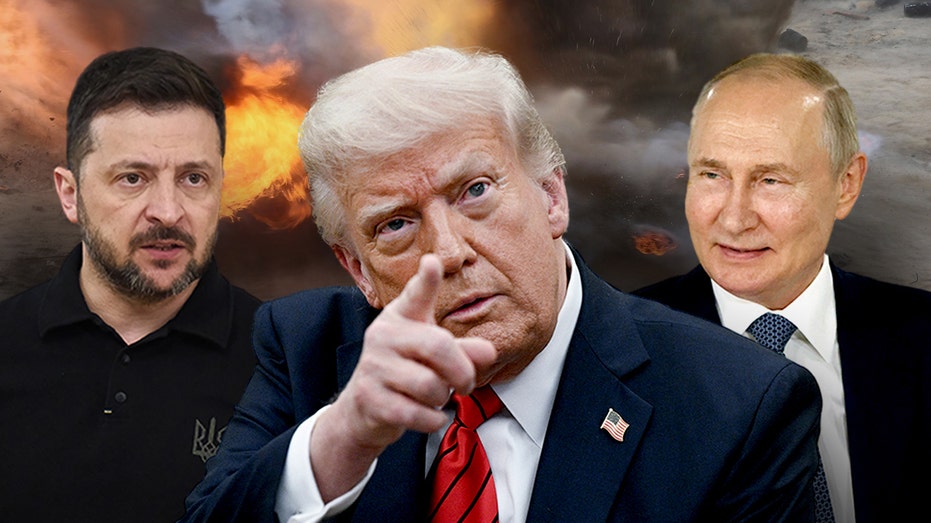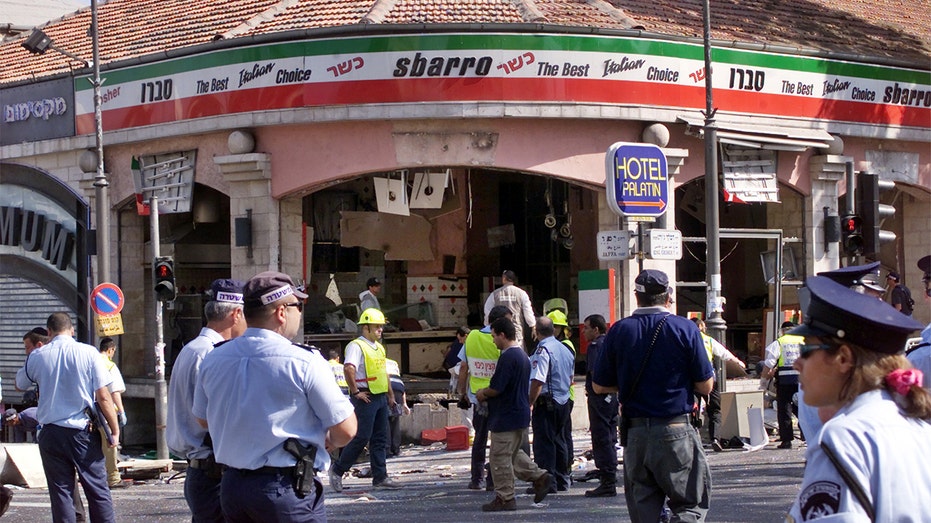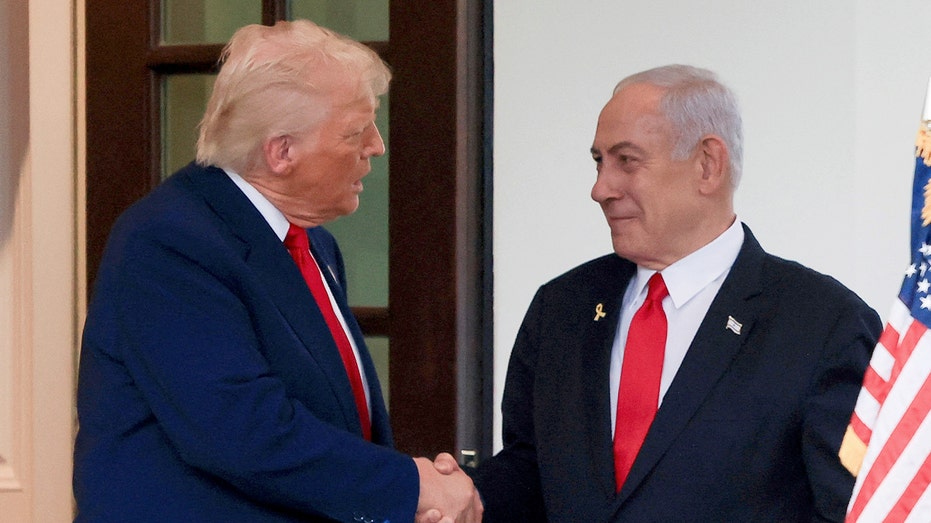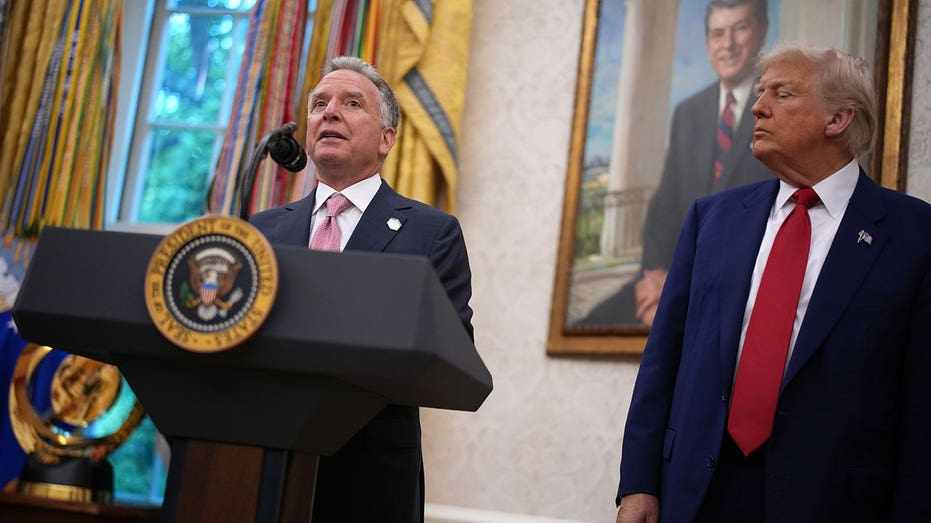Trump Talks Up Ukraine-Russia Peace Deal, But Experts Say ‘Not So Fast’ With Putin

Sarah Johnson
April 23, 2025
Brief
President Trump expresses optimism about a Ukraine-Russia peace deal, but experts remain skeptical of Putin's intentions and warn of complex risks and ongoing conflict.
President Donald Trump is brimming with confidence that a peace deal is about to happen between Ukraine and Russia, telling reporters this week that he’s "very" optimistic about a breakthrough. But while Trump’s optimism is sky-high, security experts are quick to remind the world that Vladimir Putin isn’t exactly famous for his peacemaking skills.
The mood in Washington has been all over the place lately. Just last week, the Trump administration threatened to walk away from peace talks if a ceasefire couldn’t be reached—an ultimatum that lasted about as long as a New York minute. Days later, Trump was back saying there’s a "very good chance" a deal could be inked this week.
The White House, meanwhile, is keeping its cards close to the vest. There’s been no word on what would actually happen if the U.S. bailed on one of Trump’s signature campaign promises: ending the war in Ukraine. And there’s still radio silence about whether Washington would take tough action against Putin, something Trump has threatened before but hasn’t actually done yet.
Some experts say just because Trump hasn’t hit Russia with consequences yet doesn’t mean he won’t. Former DIA intelligence officer Rebekah Koffler claims Trump might be considering using the same economic pressure tactics he’s used on China as a warning shot to Russia. But she also points out that the U.S. and Russia don’t have the same kind of economic ties as the U.S. and China—which makes things a lot more complicated and risky. Putin may not be the easiest guy to scare off, after all.
Koffler puts it bluntly: "It’s Trump’s risk tolerance vs. Putin’s now. And both like to win, with risk tolerances way above average." Talk about a high-stakes game of chicken.
On the military aid front, the White House isn’t saying whether the U.S. would keep supporting Ukraine if peace talks crumble. Trump has already limited some support—like refusing to sell Kyiv Patriot missiles that have shielded civilians from Russian strikes. For context, those missiles cost $1.5 billion a pop, which is enough to make even the Pentagon sweat.
Dan Hoffman, former CIA chief in Moscow, said continuing to support Ukraine is just smart business for the U.S.—a "tiny percentage" of the defense budget with a big payoff in deterring aggression, not just from Russia but maybe even China. Since Russia’s 2022 invasion, Washington has provided $66.5 billion in military help to Ukraine, compared to the $841.4 billion defense budget for 2024. As Hoffman put it, "If our goal is to break Putin's alliance with Iran, North Korea and China, then the best way is to prove Putin's war on Ukraine is a loser for him."
This week, a Ukrainian delegation is meeting with Trump administration officials in London, along with partners from the U.K., France and Germany. Special envoy Steve Witkoff is reportedly heading back to Moscow for more talks, but the Kremlin isn’t exactly throwing confetti. Putin’s spokesperson Dmitry Peskov warned it’s "not worth setting any rigid time frames" for a deal, saying the invasion is just too complex for a quick fix.
Security experts aren’t buying the idea that Putin is suddenly interested in peace. Hoffman says Russia is the invader, and "the one consistent thing here is Putin is continuing to fight." His goal? Overthrow Ukraine’s government or keep fighting until he can’t anymore. Koffler agrees: Putin plans to keep up the war of attrition until Ukraine either folds or is totally destroyed.
There’s even talk that Putin could try to lure Trump into a "grand bargain" by dangling personal perks, like a Trump hotel in Moscow or geopolitical wins—such as a nuclear agreement with Iran—in exchange for the U.S. backing off support for Ukraine. While this sounds like the plot of a spy novel, Koffler says it’s not out of the question, noting that Putin is always looking for leverage points in global negotiations.
She adds that Putin might offer to keep certain sensitive tech away from Iran or promise not to weaponize Iran’s nuclear program, hoping Trump would return the favor by easing up on Russia. But whether Trump would take the bait? That’s another story entirely. The only thing clear is that, for now, peace in Ukraine is looking more like a mirage than a done deal.
Topics
Editor's Comments
If Trump and Putin ever do sit down for a peace deal, I hope the translators are ready for a marathon. With these two, it’s less about world peace and more about who can out-bluff the other—like a high-stakes poker game where everyone keeps raising without showing their cards. Honestly, if someone tries to trade a hotel for a ceasefire, I’ll eat my press pass.
Like this article? Share it with your friends!
If you find this article interesting, feel free to share it with your friends!
Thank you for your support! Sharing is the greatest encouragement for us.



